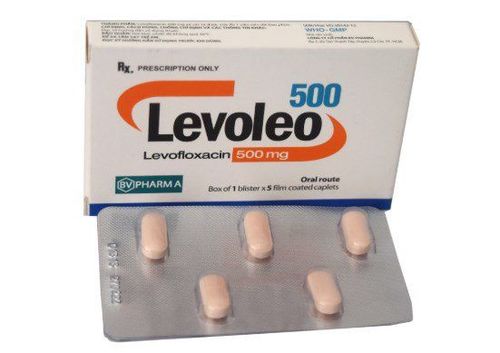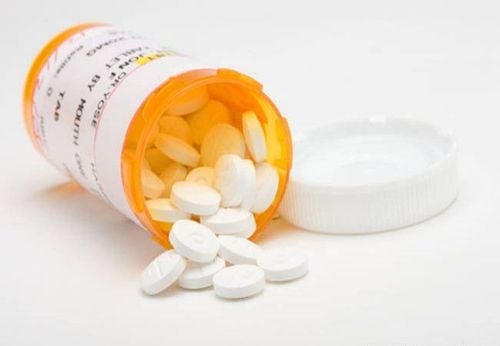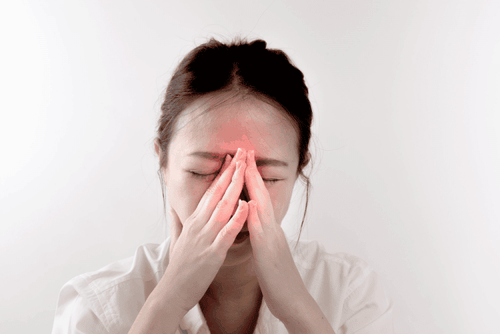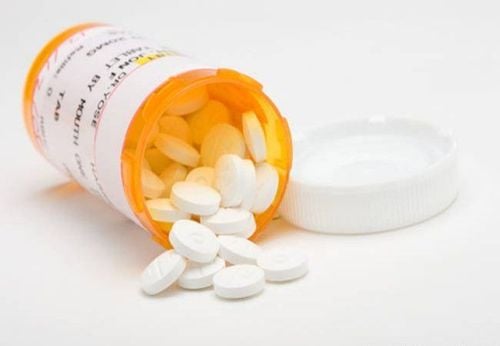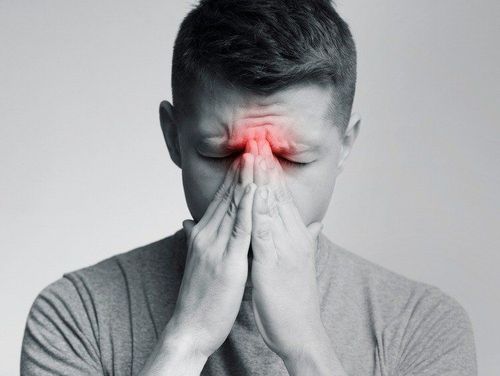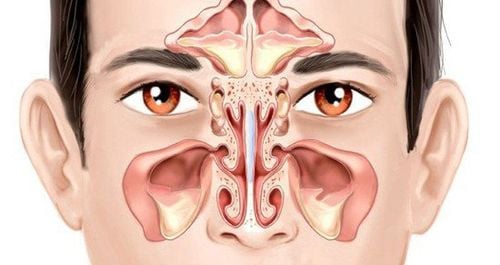This is an automatically translated article.
The article was professionally consulted by:Pharmacist Hoang Tra Linh - Vinmec Danang International General Hospital.
Pharmacist Nguyen Thi Linh - Vinmec Danang International General Hospital.
Sinusitis medications are used primarily to relieve the symptoms of rhinitis and sinusitis. However, to be safe, patients should use medicine for sinusitis as directed by their doctor.
1. Medicines for acute sinusitis
For cases of acute sinusitis caused by allergies, colds, or viral and bacterial infections, the patient can take care of themselves and use medicine to treat sinusitis as prescribed by the doctor to do it. relieve symptoms and speed up recovery.
1.1 Medicines for sinusitis in the form of sprays and drops Spray and rinse the nose to help remove excess mucus, clear the sinuses, relieve symptoms of nasal congestion. Corticosteroid-containing nasal spray: Using a nasal spray containing corticosteroids has the effect of preventing and reducing rhinitis. The drug relieves symptoms such as itchy nose, sneezing, runny nose, nasal congestion, swelling of the nasal mucosa. The commonly used corticosteroids are: beclomethasone dipropionate, budesonide, fluticasone propionate, triamcinolone acetonide. Other types: Some nasal sprays containing substances such as chlorzoxazone, naphazoline, phenylephrine or pseudoephedrine... have local vasoconstrictor effects, reduce inflammation, and decongest the nose. The drug has a rapid onset of action about 1-3 minutes after spraying. However, the prolonged use of these drugs can cause more severe inflammation, so do not arbitrarily use them for a long time without a doctor's prescription.
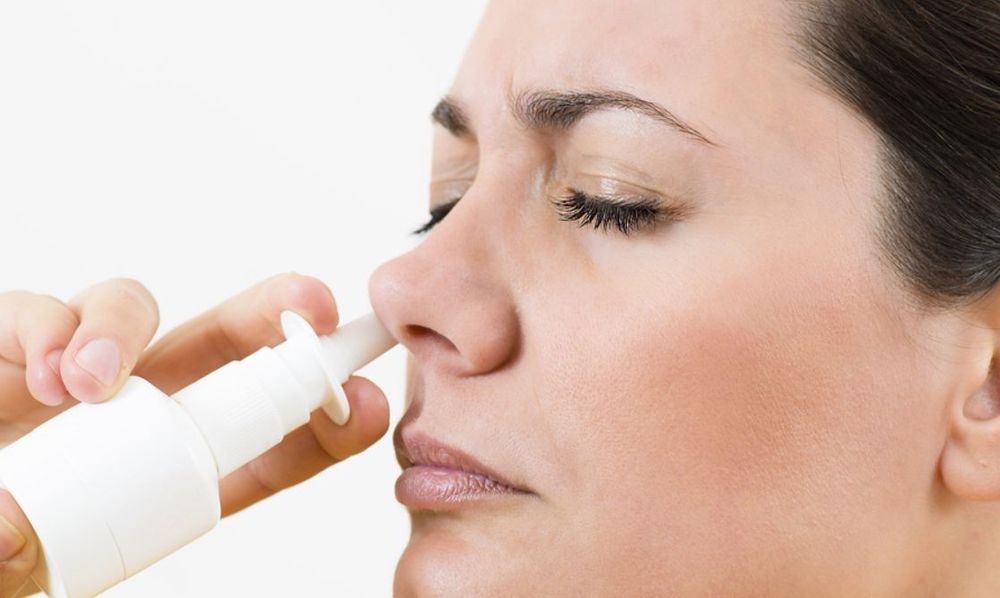
Rửa mũi trước khi sử dụng thuốc chữa viêm xoang mũi dạng xịt
1.2 Oral sinusitis medicine Decongestant: Oral sinusitis medicine (in capsule or syrup form) contains active ingredients similar to ephedrine or phenylephrine... causing vasoconstriction, increasing fluid drainage accumulates in the nasal cavity faster, making the nose open and easy to breathe. However, these drugs can cause a few unwanted side effects such as: increased blood pressure, stimulation of the central nervous system... Analgesics: In a few episodes of acute sinusitis, patients have may be indicated to use additional pain relievers and antipyretics if accompanied by symptoms such as pain in the face and forehead. The commonly used pain relievers are acetaminophen, aspirin, ibuprofen, paracetamol, ... However, it should be noted in case patients with asthma are sensitive to aspirin, ibuprofen. Therefore, the use of the drug should be consulted by a doctor.
2. Medicines for chronic sinusitis or infection
For cases of severe acute sinusitis, chronic due to infection, bacterial infection, the doctor may prescribe the following drugs:
Drugs for sinusitis containing corticosteroids (spray and oral form): Corticosteroid sprays have a local effect, reducing unwanted effects compared to oral administration. However, depending on the condition of sinusitis, the doctor will prescribe the appropriate corticosteroid route. Long-term use of corticosteroids can cause many unwanted effects, so it is necessary to examine and follow the instructions of the doctor.
Antibiotics: Antibiotics are indicated for severe cases of sinusitis and caused by bacteria. Depending on factors such as symptoms of the disease, allergic reactions of the patient, history of antibiotic use, etc., the doctor will specify the type of antibiotic and the appropriate duration of antibiotic use.
Besides, to determine the type of antibiotic to use, the doctor will conduct a test for the type of bacteria present in the nasal mucus. Note, the use of antibiotics requires a doctor's prescription, patients should avoid buying and taking drugs on their own to avoid antibiotic resistance.
Antihistamines: Including forms such as tablets, syrup, spray, effective to relieve allergic symptoms associated with sinusitis such as itchy eyes, itchy nose, sneezing, stuffy nose, runny nose.
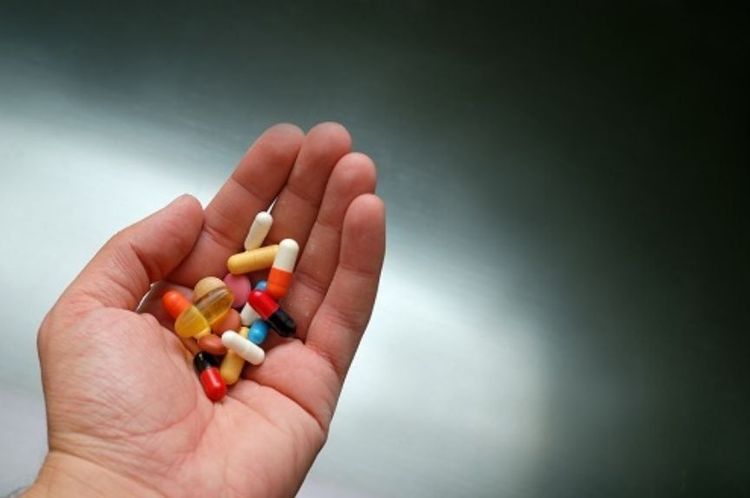
Thuốc chữa viêm xoang mũi dạng uống có thể được bào chế theo dạng viên nén hoặc siro
3. Side effects of sinusitis medicine
The use of medicines for sinusitis, including sprays and oral medications, can cause some side effects as follows:
For decongestants:
Increased blood pressure, increased heart rate Loss sleep Nervousness, headache Anxiety, restlessness, or tremors Dry mouth, blurred vision Urinary retention Cough, nausea, nosebleeds For corticosteroids (oral risk is higher than topical spray)
Weight gain Increased blood pressure Increased risk of infections Increased blood sugar Osteoporosis Osteoporosis Adrenal insufficiency Therefore, the use of medicine for sinusitis requires indications and a doctor's opinion. Patients should avoid self-medication to limit dangerous complications.
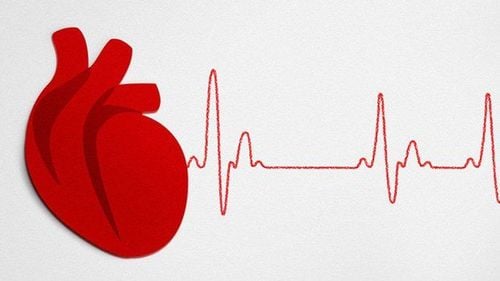
Tác dụng phụ của thuốc gây tăng huyết áp
4. Notes when using medicine to treat sinusitis
Patients when using medicine to treat sinusitis need to follow the doctor's instructions. Besides, for the treatment to be effective, it is necessary to combine the following activities:
Take time to rest Drink lots of water, including juice Limit the use of stimulant drinks such as alcohol, beer, coffee... Elevate your head while sleeping to help relieve congestion, sinuses can be circulated. You can steam your nose with hot and humid steam. Avoid exposure to dust and gas. Keep the area clean, especially the ear, nose and throat area. If symptoms of infection appear during treatment such as continuous high fever, pain in the forehead, eyes, face, headache, difficulty breathing, blurred vision... the patient should immediately go to the muscles. medical facility for prompt treatment.
Sinusitis can be effectively treated with medications. However, when using medicine for sinusitis, patients need to have a doctor's prescription and instructions, avoid buying and taking medicine on their own.
Please dial HOTLINE for more information or register for an appointment HERE. Download MyVinmec app to make appointments faster and to manage your bookings easily.




